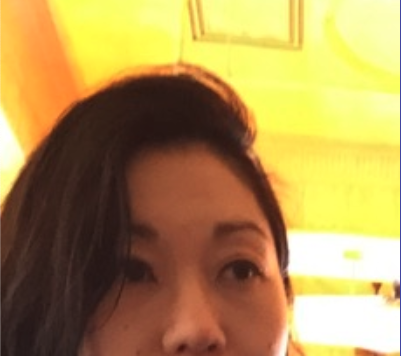Digital Assembly 2019 Symposium
Featuring talks by David Parisi and Jennifer Rhee
Thursday, February 21st at 3pm
And a coding workshop led by Annette Vee
Friday, February 22nd at 10am
Meet the Speakers
 David Parisi
David Parisi
David Parisi is Associate Professor of Emerging Media at College of Charleston. His research and teaching focus on media archaeology, game studies, sensory studies, cybersex, and haptic media studies. Parisi has worked to advance a haptocentric account of media that brings increased attention to this long-neglected mode of experience. His book Archaeologies of Touch: Interfacing with Haptics from Electricity to Computing was published by University of Minnesota Press’s Electronic Mediations series in 2018. His research on tactility has been featured in forums such as The Wall Street Journal, Vice, Playboy Magazine, Computer Business Review, and Public Seminar.
 Jennifer Rhee
Jennifer Rhee
Jennifer Rhee is associate professor of English at Virginia Commonwealth University. Her research and teaching focus upon contemporary American literature, science and technology studies, media studies, robotics and artificial intelligence, and digital art. Her book The Robotic Imaginary: The Human and the Price of Dehumanized Labor was published by University of Minnesota Press’s Electronic Mediations series in 2018. Her work has been published in journals such as Mosaic, Camera Obscura, Configurations, and Postmodern Culture.
 Annette Vee
Annette Vee
Annette Vee is associate professor of English at the University of Pittsburgh. Her research and teaching focus on literacy, composition and technology. She explores digital intellectual property debates as well as intersections between alphabetic and code writing in historical context. Her book Coding Literacy: How Computer Programming is Changing Writing was published by MIT Press in 2017. She has published on digital games, writing center technology and intellectual property issues in software composition in journals such as Computers and Composition, Computational Culture, Enculturation, and Literacy in Composition Studies.
Schedule
Thursday, February 21
UF Informatics Institute – Lecture Room
- 2:45-3:00 – Refreshments and Welcome
- 3:00-4:00 – Keynote from David Parisi with Q&A to follow
- 4:00-5:00 – Keynote from Jennifer Rhee Q&A
- 5:00-5:15 – Closing Remarks
Friday, February 22
Smathers Library West – Scott Nygren Studio
- 9:45-10:00 – Refreshments and Welcome
- 10:00-12:00 – Coding Workshop with Annette Vee
- 12:00-12:15 – Q&A and Closing Remarks
“‘I can’t feel my…I can’t feel much of anything’: Rumble and the limits of haptic embodiment in video game interfaces” — David Parisi
In 1997, Sony released the DualShock—a new controller for its Playstation console that contained two vibration-producing motors intended to simulate the sensations of being physically present in video game worlds. Informally referred to as rumble, this mechanism worked as a partial solution to the feedback problem in games—the challenge of how to best display information to the player’s senses. However imperfect, the solution worked: rumble was adopted by Microsoft for its Xbox controller in 2001, and carried forward into subsequent generations of consoles for both companies. Along the way, rumble has been consistently denigrated as a ‘primitive’ or ‘rudimentary’ form of touch feedback, with both Microsoft and Sony promising that rumble’s limits would be eclipsed by future generations of hardware, including vibration-enabled touchscreens, haptic gloves, and electrified bodysuits. But over twenty years after the DualShock’s release, rumble remains the dominant mode of touch feedback in games, enduring even in the face of virtual reality’s recent re-emergence.
In this talk, Parisi will make three moves intended to contextualize rumble’s status as the hegemonic mode of feeling game worlds. First, using a media archaeological approach to touch feedback technologies, he will situate rumble in a broader genealogy of haptic interfaces, linking its development to previous devices that passed information through the sense of touch. As with those prior interfaces, rumble emerged as a response to the limits of the visualist paradigm of human-computer interaction—an attempt to counter the ocularcentrism of computer displays. Second, he will confront rumble’s limitations a means of touch transmission, showing how it selectively, strategically, and imperfectly extends touch into virtual worlds. Finally, to anticipate future modes of bodily interaction with games, Parisi will look to some current- and next-generation haptic interfaces that offer to transport a more holistic version of the tactile system into digital environments.
“The Robotic Imaginary: The Human and the Price of Dehumanized Labor” — Jennifer Rhee
This talk draws on Rhee’s recent book, The Robotic Imaginary: The Human and the Price of Dehumanized Labor (University of Minnesota Press, 2018). In this talk, she will trace connections between robotics technologies and cultural forms at the sites of dehumanization and devalued labor. She will argue that the figure of the robot in contemporary culture and technology is largely shaped by the conceptions of the human, and more importantly of the dehumanized. Rhee will look specifically at the labor of drone operators and what she calls “drone art,” or contemporary artistic responses to drone warfare. Drawing on the racialized dimensions of early cybernetics military research, she will look at drone art that responds to drone victims’ dehumanization by examining the limits of identification as a means to ethical response. Instead, drone art, as Rhee will discuss, points to an understanding of the human through unrecognizability, difference, and unfamiliarity, rather than recognition, familiarity, and knowability.
“Teaching Coding in the Humanities” — Annette Vee
Courses in computer programming, which originated in math departments in the 1950s and ’60s, are now common in the humanities. Instructors of these courses must carefully consider what role coding can play in fulfilling the course objectives of humanities courses, especially in gen-ed, undergraduate courses designed for students with varied experience and in graduate courses from disciplines where methods is not a primary focus. In this workshop led by Vee, participants will consider a few different approaches to teaching coding in the humanities by looking at syllabi and commonly used texts and techniques. How do these courses pair writing with coding? How are theories of programming and computation aligned with hands-on work? How do they make coding accessible and exciting to students from diverse backgrounds with differently embodied experiences? After analyzing these different approaches, participants will outline their own syllabus for a course they want to either teach or take on coding in the humanities.
Contact the Digital Assembly
President, Caleb Andrew Milligan
camilligan@ufl.edu
Vice President, Jason Crider
jason.crider@ufl.edu
Treasurer, Andrea Medina
andream@ufl.edu
Secretary, Ashley Tisdale
atisdale@ufl.edu
